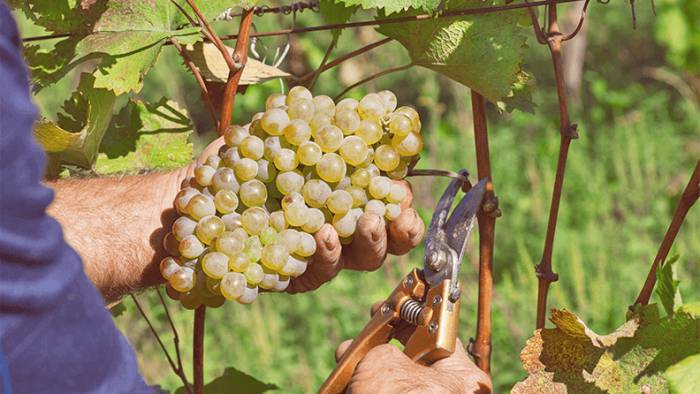
Portugal is considering a significant change in its wine industry regulations as the country debates whether to authorize the planting of the Defensor grape, a disease-resistant white variety. Currently, Portugal prohibits the use of hybrid grape varieties known as PiWi, which are bred for their resistance to common vine diseases. However, the Lisboa wine region is leading an initiative to break this longstanding rule by seeking government approval for Defensor.
The Defensor grape, developed through a cross between Geisenheim 323-58 and Ehrenfelser in Germany in 1978 and later selected in 2000, has shown strong resistance to downy and powdery mildew. This trait is particularly valuable in Portugal’s Atlantic climate, where humidity can make vineyards vulnerable to these diseases. According to Francisco Toscano Rico, president of Wines of Lisboa, Defensor offers productivity and balanced acidity and sugar levels suitable for quality wine production. He notes that its disease resistance could reduce the need for chemical treatments, lowering costs and environmental impact.
Despite these advantages, Defensor remains on Portugal’s list of prohibited varieties. The push for its approval comes after years of research and field trials across several Portuguese regions. The proposal includes strict controls: if authorized, plantings would be limited and subject to a ten-year evaluation period to monitor performance and wine quality.
The debate over PiWi varieties like Defensor is not unique to Portugal. Across Europe, winemakers are increasingly interested in hybrids that can withstand disease without heavy pesticide use. Some producers argue that these grapes are essential for sustainable viticulture as climate change brings new challenges. Others remain skeptical about the quality of wines made from hybrids compared to traditional Vitis vinifera varieties.
In Portugal, the issue is contentious. Toscano Rico acknowledges that the move is far from universally accepted and expects it will spark national debate among growers, winemakers, and regulators. The final decision rests with the Portuguese government, which is expected to deliver a verdict by the end of 2025.
If approved, Defensor would become an authorized grape for white wines under the IG Lisboa designation. Wines made from Defensor are described as fresh and fruity, characteristics that could appeal to both domestic and international consumers.
Elsewhere in Europe, hybrid grapes have already begun making their mark. In France’s Languedoc region, Domaine Paul Mas has introduced wines made from disease-resistant varieties after a decade of research. In the UK, supermarket chain Tesco recently launched a white wine made from another PiWi grape called Floréal, aiming to familiarize consumers with these new varieties through clear labeling.
The potential authorization of Defensor in Portugal reflects broader trends in global viticulture as producers seek ways to adapt to environmental pressures while maintaining wine quality. The outcome of this decision could influence future policy on hybrid grapes not only in Portugal but also in other traditional wine-producing countries facing similar challenges.

Dining and Cooking